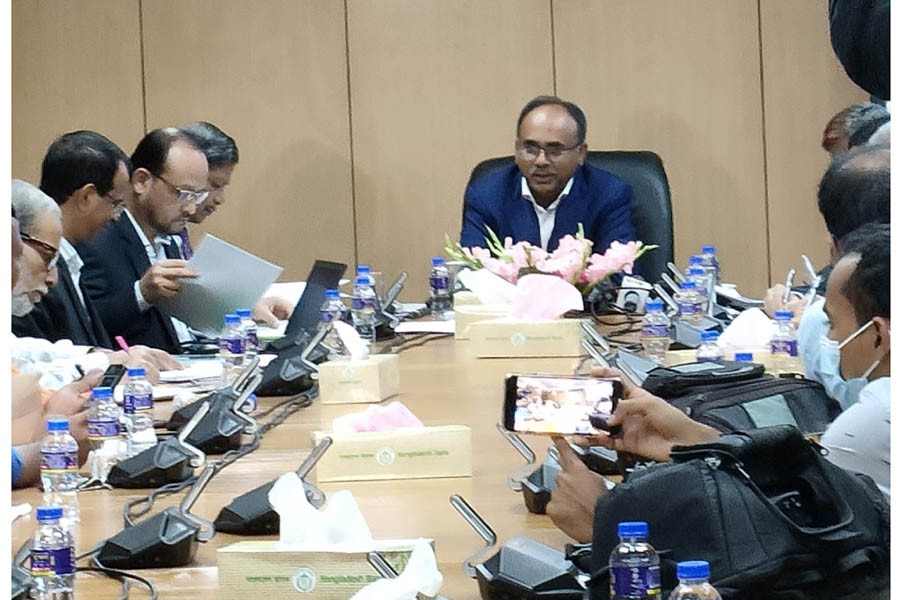Bangladesh Bank Governor Abdur Rouf Talukder said that banks must comply with rules in debt management and other activities assuring that the central bank will ensure good governance in the banking sector.
The governor was addressing the media at Jahangir Alam Conference Hall at Bangladesh Bank Bhaban on Thursday, his second meeting with journalists after assuming office on July 12, reports UNB.
The central bank, meanwhile, identified the weak banks and it plans to talk to them one-to-one basis. These banks will get a three-year business plan for improvement under direct observation of Bangladesh Bank, he said.
Failure in one bank would affect other banks and financial institutions. So, it is better to improve banks by good governance, he pointed out.
The central bank has already assured banks' managing directors (MDs) and chief executive officers (CEOs) of support regarding good governance, he said.
Deputy Governors Ahmed Jamal, Kazi Sayedur Rahman, AKM Sajedur Rahman Khan, Abu Farah Md Nasser, BFIU chief Masud Biswas, executive director (ED) and chief economist Habibur Rahman, ED and spokesperson Md Serajul Islam, and senior officials were present at the event.
Rouf said the central bank has taken essential policy measures for a stable exchange rate, increasing the supply of dollars, curtailing unnecessary luxury imports and increasing vigil in the exchange market.
But, it will take time to get results, he said. "We should be patient."
Ruling out raising the lending interest rate, the governor said that the BB prefers demand cut, imposing higher taxes to curb the inflation rate in the domestic economy due to external effects.
He also hinted at strengthening the bond market along with enhancing the equity supply in the stock markets.
Reply to a query Rouf said banks have to ensure compliance in each sector and serve every citizen, influential or ordinary.
Regarding the current account deficit, the governor said, "Our economy is heavily import-oriented. Fuel oil, gas, edible oil, food and even over 60 per cent raw materials for export-oriented industries are imported. This created an imbalance or deficit."
The BB's chief economist Habibur Rahman gave a presentation on different policy measures that have been taken by the central bank recently to stablise currency and money flow.
The BB sold $7.4 billion in the FY22 to keep foreign exchange supply smooth. The BB bought $7.7 billion from banks in FY21 due to keeping a stable forex exchange rate.
The licenses of 10 exchange houses have been cancelled and notices were sent to another 45 houses to explain their transaction report and alleged violation of money exchange rules.
The BB has increased the interest rate on non-resident foreign currency deposits (NFCD) and benchmark (Eurocurrency deposit rate) by an additional 2.25 and 3.25 per cent to attract more foreign currency deposits.


